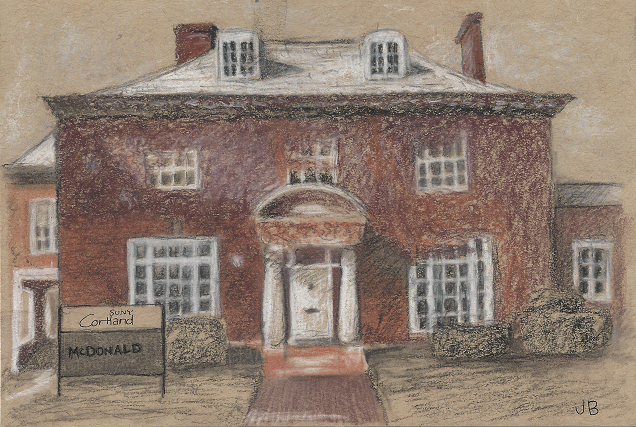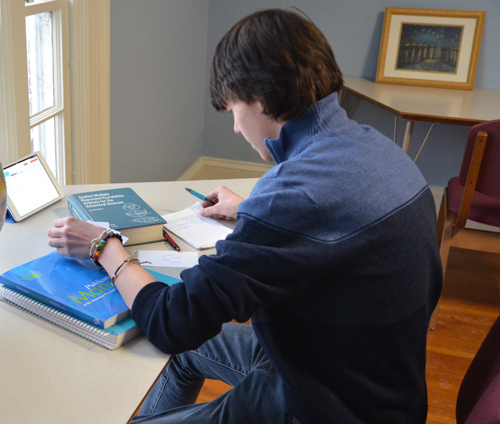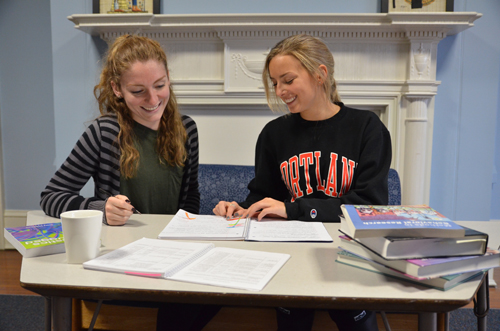What is The Study Place Project (TSP2)?
The Study Place Project (TSP2) is a new project designed to help first-year college students adjust to academic life at SUNY Cortland. As a TSP2 participant, you will be invited to utilize the project’s dedicated study space located in the beautiful James M. McDonald Building. This space has been designed to provide you with a comfortable place in which you can focus on your studies. In the main study area, internet access will be limited to study-related technology and internet sites, and students will be asked to limit their use of non-study social media and cellphones to the adjacent break area. This way, you and the other students will have a distraction-free study space. Optional access to online music will be provided to give you the ability to listen to your favorite kind of music while you study.


